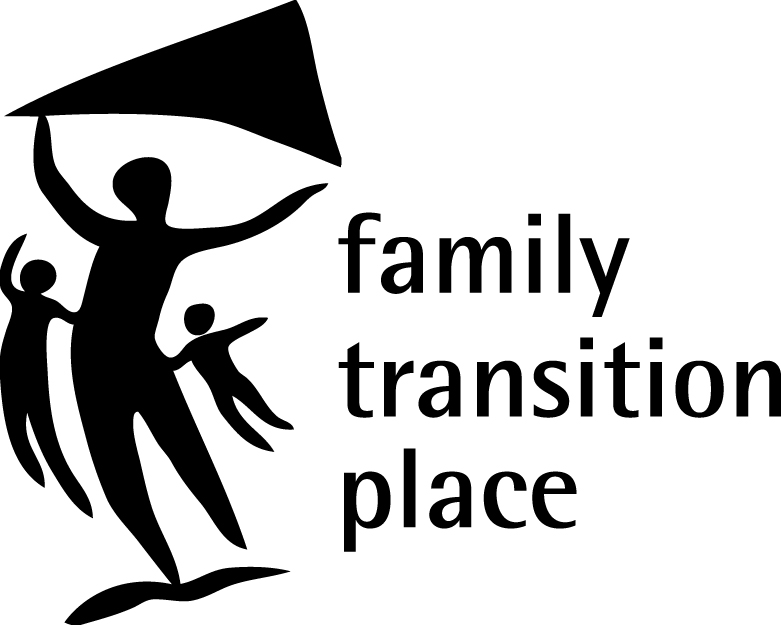Family Transition Place (FTP) acknowledges and promotes the rights of all persons with disabilities as enshrined in the Canadian Charter of Rights and Freedoms, the Ontario Human Rights Code and the Ontarians with Disabilities Act. All persons, including those with disabilities, have the right to equal access and opportunity in employment, programs and services at FTP.
FTP will provide its programs and services in a way that respects the dignity and independence of people with disabilities. We are also committed to giving people with disabilities the same opportunity to work for our agency or access our programs and services and allowing them to benefit from the same services, in the same place and in a similar way as others.
FTP is committed to annually completing an accessibility assessment that identifies, mitigates, prevents and removes (where possible) accessibility barriers for all stakeholders. We review all client and staff surveys, as well as any other formal or informal feedback received for accessibility concerns as part of this annual process. As a result of feedback, trends and key learnings, we have incorporated the following in our building and services:
- Two accessible parking spots that were moved to a location closer to the building on a more level surface
- Three accessible units in the shelter
- A key fob secure lift to access the second floor of the shelter
- A lift accessible to community clients to access the counselling rooms on the lower level
- Counselling sessions available in person, via telephone or video calls
- Support via text message and email
- Access to interpreter and translation services, as well as an increased number of staff who can support clients in multiple languages
Training
FTP will provide training to all employees and volunteers on the AODA and Human Rights code as it relates to people with disabilities. Training will be provided during the initial orientation process and at appropriate intervals on an ongoing basis after the commencement of duties or activities.
Assistive Devices
Persons with a disability will use and keep with them their own personal assistive devices when working for FTP or accessing programs and services offered by FTP.
FTP will maintain an inventory of basic assistive devices for staff and clients who are visually impaired or deaf, deafened or hard of hearing. Appropriate employees will be trained on the proper use of these personal assistive devices.
Communication
A variety of appropriate methods, tools and devices will be utilized to communicate effectively with persons with disabilities regarding FTP’s services and programs.
Examples will include, but not be limited to: accessible website; telephone relay; email; social media; large print documents, translation or interpretation services, screen readers, plain language, audio/video, Braille.
If a person with a disability requests a document or information, FTP will provide, within a reasonable time frame, the document or information in a format that takes into account the person’s disability.
Service Animal
Service Animals will have access to all areas of the facility at 20 Bredin Parkway. Persons with a disability who are accompanied by a guide dog or other service animal will have access to the premises with the animal and will keep the animal with them at all times.
Support Persons
A Support Person is anyone that the person with a disability identifies as a support person (i.e., family member, friend, paid attendant, Personal Support Worker, sighted guide or interpreter). Persons with a disability can be accompanied by a support person when accessing services at FTP.
Support Persons will comply with all policies, procedures, rules and regulations of FTP.
Employment
FTP is committed to fair and accessible employment practices. During the recruiting, assessment and hiring process people with disabilities will be accommodated as possible. Individual accommodation and return-to-work plans will be developed and put in place for employees that have been absent due to a disability.
Disruption of Service
In the event of a planned or unexpected disruption in the services or programs, a notification will be circulated internally, posted on notice boards, at all public entrances and on FTP’s website. This notice will include information about the reason for the disruption, its anticipated duration, and a description of alternative facilities or services, if available.
Feedback and Complaints
Comments on our services regarding how well those expectations are being met are welcome and appreciated. Persons with disabilities will be encouraged to provide feedback regarding the way FTP provides programs and services. Feedback will be directed to the Program Supervisors and/or Executive Director. Individuals can expect a response to their comments within five (5) business days.
Amendments Policies
FTP is committed to developing policies that respect and promote the dignity and independence of people with disabilities. Any FTP policy that does not respect and promote the dignity and independence of people with disabilities will be modified or removed.
AODA Accessibility Standards Policy
Service Animal Owner Responsibility
Multi-year Accessibility Plan
For your reference, and as required by the Accessibility for Ontarians with Disabilities Act (AODA), a PDF version of our Multi-year Accessibility Plan can be found below.
This Website
We have tried to design our website to make it as accessible as possible whilst remaining visually interesting and easy to use.
Currently, this website includes a variety of features which are summarized as follows:
Images and alt tags
We have avoided using excessive graphics within the website where possible in an effort to maximize quick download times and access to information which cannot be read if in image format.
Where images are used we have added ‘Alt’ tags – text alternatives so that you will still know what the image is meant to convey even if it doesn’t load or if you’ve have chosen to browse with the images switched off or you are using an assistive technology like a screen reader to browse the web page rather than view.
Resizable text
We have been careful to make sure that we haven’t fixed the size of the textual information on the website so that visitors who wish to can alter the font size on the screen to make it easier to read.
At the top of the page is a menu item where you can change the text size.
You can also change the text size in your browser.
Change Contrast (high contrast)
We have provided our web users with an option to change the colour contrast on each of our web pages. If you have limited or low vision, you may find this website feature useful.
This website’s change contrast option (located near the top and left of the browser window) provides a high contrast viewing option.
Colours and contrast
We have considered the needs of users who are colour-blind by selecting colour combinations with sufficient contrast between foreground and background.
Coding standards and Double-A conformance
This website is built using code compliant with World Wide Web Consortium (W3C) standards for XHTML and Cascading Style Sheets. W3C is the governing authority on web development standards and practices.
The site displays correctly with current browsers, and using standard XHTML code means that any future browsers will also display this website correctly.
We are continuously improving this website to ensure that pages conform to the Double-A level of the W3C Web Content Accessibility Guidelines 2.0. (English guidelines and French guidelines)
The Accessibility Guidelines explain how to make Web content accessible to people with disabilities. Conformance to these Guidelines helps to make the Web more accessible to users with disabilities and benefits all users.
There may be a few pages that do not conform to all the guidelines. While every effort is made to ensure the whole site conforms, with many web contributors, this is an ongoing process.
If you have any problem accessing this site, please write to us at admin@familytransitionplace.ca



